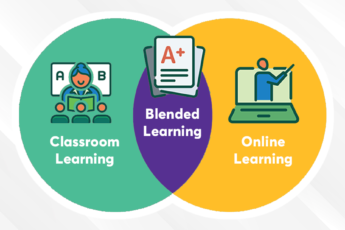The Role Of Parents In Early Childhood Education

Young children in developmentally critical periods of their lives, between the ages of 2-10, see a much higher impact when their parents get involved in their learning. The research into parental involvement in schooling is not new; a study called “Parental Involvement in the Classroom” by Machen, Wilson, & Notar, published in 2005, revealed that enhancing the involvement of parents in the classroom goes a long way towards improving the quality of the schools in general, besides contributing to higher standards and providing opportunities for students. The study also stressed the importance of creating parent-teacher collaboration strategies to eliminate all hindrances to parental involvement in early childhood education. During the years a child’s brain is still forming connections and synapses, building a network of supportive behaviour can define the chance of said child’s future success.
How Early Learning Centres Can Encourage Parental Involvement
Parental awareness and engagement in early childhood development and learning can strengthen the experiences from the Anganwadi centres, pre-primary schools, and primary schools. This responsiveness plays a critical role in ensuring optimal and holistic development of young learners. ECCE centres need to do their part to ensure early involvement from parents. This can occur as:
- Introduction to the anganwadi centre/pre-primary/primary school: To leverage parental support and to gain tangible outcomes, early learning centres can showcase their internal infrastructure and personnel, to pinpoint the people and places responsible for turning their little ones into responsible citizens. This increases the level of engagement, and the solidarity from parents.
- Develop an understanding of the curriculum: The comprehension that the early years’ education can build the foundations of lifelong learning in children needs to be cemented in the parents’ minds. A parent who understands the need for early learning, and knows what their child is working on in school, has a better sense of their child’s competency and areas of improvement.
- Acquainting parents with teaching methodologies: “If parents themselves don’t understand the (early learning) program and program components, it is very difficult for them to provide their support” was just one of the sentiments expressed in our second educative #EarlyLearningMatters session, as we spoke about the importance of parental resources.
*Watch the episode here, and join us on 13th and 14th February for another educational session on the ‘Role of Public Private Partnerships in Innovation and Implementation of NEP 2020’.

Harnessing this particular hidden resource involves explaining the teaching methodology undertaken and the philosophy behind the methods followed. This step is aimed at increasing parental knowledge about new age methods of teaching, developmental milestones, appropriate learning outcomes, and more.
For example: Square Panda India’s teaching-learning programs involve an introduction to play-based and activity-based learning, the adoption of which we believe impacts early learning outcomes to a great extent.
- Building a connection between school and home: Extending the classroom experience to the home, by expanding the curriculum to involve home-based play-and-learn activities, can establish a connection between classroom learning and real-life experience. Additionally, this connection supports further learning, acquisition of key skills, and promotion of school-readiness, resulting in a lower drop-out rate.
- Encourage active parental participation: Schools can request parents to be more involved in their children’s progress, through volunteering programs, regular parent-teacher meetings, hosting special events for parents, inviting them to share their expertise and talents, and more. Schools can also make useful resources available to the parents, to increase their intervention and help them feel more engaged in their child’s education.
Square Panda India has always taken steps to ensure parental awareness as we teach, knowing that parental involvement is a key ingredient in raising the quality of ECCE provision. Building a program like Aarambh is not effective without strong support from parents and families. We recognise the role parents play in ECCE and work towards enlightening educators with the same level of understanding. Our educator empowerment programs include explaining the importance of parents in the ECCE ecosystem and in collaborative learning.
Children learn better if their parents are actively involved in their education. Parents serve as a critical partner to educators in the ECCE landscape. When early learning facilitators are able to work together with the parents, we will be able to build a successful network of learning, allowing our students to develop holistically.
Learn more about how Square Panda India’s educator empowerment programs change the way we approach the parental involvement aspect of early learning, at ecce.squarepanda.in




Leave a Comment